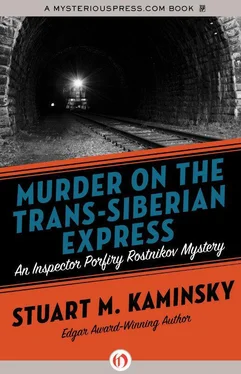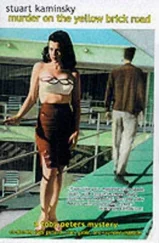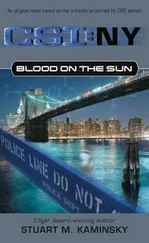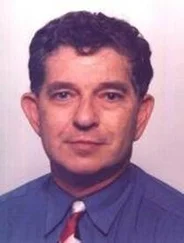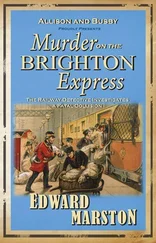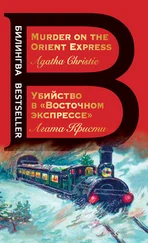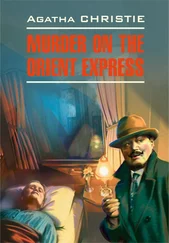Stuart Kaminsky - Murder on the Trans-Siberian Express
Здесь есть возможность читать онлайн «Stuart Kaminsky - Murder on the Trans-Siberian Express» весь текст электронной книги совершенно бесплатно (целиком полную версию без сокращений). В некоторых случаях можно слушать аудио, скачать через торрент в формате fb2 и присутствует краткое содержание. Год выпуска: 2012, Жанр: Полицейский детектив, на английском языке. Описание произведения, (предисловие) а так же отзывы посетителей доступны на портале библиотеки ЛибКат.
- Название:Murder on the Trans-Siberian Express
- Автор:
- Жанр:
- Год:2012
- ISBN:нет данных
- Рейтинг книги:3 / 5. Голосов: 1
-
Избранное:Добавить в избранное
- Отзывы:
-
Ваша оценка:
- 60
- 1
- 2
- 3
- 4
- 5
Murder on the Trans-Siberian Express: краткое содержание, описание и аннотация
Предлагаем к чтению аннотацию, описание, краткое содержание или предисловие (зависит от того, что написал сам автор книги «Murder on the Trans-Siberian Express»). Если вы не нашли необходимую информацию о книге — напишите в комментариях, мы постараемся отыскать её.
Murder on the Trans-Siberian Express — читать онлайн бесплатно полную книгу (весь текст) целиком
Ниже представлен текст книги, разбитый по страницам. Система сохранения места последней прочитанной страницы, позволяет с удобством читать онлайн бесплатно книгу «Murder on the Trans-Siberian Express», без необходимости каждый раз заново искать на чём Вы остановились. Поставьте закладку, и сможете в любой момент перейти на страницу, на которой закончили чтение.
Интервал:
Закладка:
“Emil Karpo, you are bitter.”
Karpo did not answer.
“I think that is a good start,” said Rostnikov. “Bitter is a sharp edge of emotion. It cuts deeply. You are going to have a new assignment for the indefinite future.”
Karpo registered nothing, asked no questions.
“You have your files of dead cases,” Rostnikov said. “Your black books filled with crimes which have never been solved, which you work on when you have time. And there are more pages and more books all the time.”
“The point of this, Chief Inspector?”
“You are to work on your dead cases,” said Rostnikov. “Choose whichever ones you wish, go back as far as suits you. Take the time you need on each one. No pressure for success. Simply keep me informed. No written reports unless you successfully conclude a dead case. You understand?”
“Your words are clear.”
“And no killing,” said Rostnikov. “Justice, Emil Karpo. Avoid, if you can, cases with political implication, cases which might have in them the possibility for exploitation. And do not take unnecessary risks. You understand?”
“Perfectly. When do I begin?”
“When we finish our coffee. Oh yes, Elena and Iosef are to be married as soon as she is up and well. You will of course attend the wedding and the party.”
“If I am invited.”
“You are. Now, questions?”
“No.”
“I have one. What are your thoughts about the sun?”
“It is the source of energy and life on earth,” said Karpo. “It is a star that will someday die.”
“Nothing else?”
Again, Karpo did not answer.
“I have brought you something,” Rostnikov said. “I would like you to read it.”
He reached awkwardly into his coat pocket and came up with a ragged paperback book. He handed it to Karpo.
“Poetry,” Rostnikov said. “Russian poetry. Yevtushenko. Have you ever read poetry?”
“No. It serves no function other than feeding delusion and fantasy.”
“Humor me, Emil,” said Rostnikov, starting to rise. “Humor me. Perhaps you will find that you have undervalued the function of delusion and fantasy. What takes place in our imagination is as real as that which exists outside our body.”
“I have not found it so,” said Karpo, also rising.
“One can but hope,” said Rostnikov.
Epilogue
Siberia: 1912
Boris Antonovich Dermanski adjusted the straps on the pack he carried on his back and tried to get his bearings. It had been nineteen years since he had been here. The train tracks were there, two sets of them now, but there was no train at rest to tell him which way to go.
He knew that the rock where he had hidden the package was north of the tracks and no more than a few hundred yards from them. That reduced the search area to several million acres. He also knew that the rock was somewhere between Beloyarskly and Sverdlovsk-Pass.
Boris had survived the search and killing two decades earlier. He had been tortured, lost a small finger, but played the fool and survived. Lieutenant Smolkov had not been so lucky. Boris had continued to work on the tracks, had hidden the package deep Into his thoughts, covered it with a gentle fog, waited, fearing that there might be those who still watched, still combed the area where the box might be hidden.
He had left the railroad and with the little money he had saved opened a small shoe-repair shop on Gogol Street in Ekaterinburg with the thought that someday, a day when he was absolutely certain it would be safe, he would return for the package he had hidden. Boris had married, had a son, survived with food on the table, just short of prospering.
When fifteen years had passed he had taken up hiking, always alone, staying out in the forest for days at a time, professing a love of nature which he did not feel. He had walked along the tracks, marking off the areas, probing into the forest through the aspen and birch, once-fighting off a pack of six wolves, once getting lost for almost a week.
What he searched for was some sign, some landmark he might recognize, but it all looked the same.
This day, however, was different. There was something familiar about the woods to his right and the mountains far beyond. He had felt this before, had been wrong, but this time felt different. It was a visual memory brought back from the protective fog.
He plunged into the forest. It did not feel the same as it had when he and the others had come in to drop the dead, and yet he was almost certain that he was right. He had gone more than a hundred yards farther than he was sure the rocks had been. He turned around, moved to his left about twenty-five yards, and started back. His plan was to continue this pattern, back and forth, till he found the rocks or was certain that he had to move on.
It was not the rocks he spotted first. It was the bones, and he almost missed them. A single bone stuck up from the earth, pointing toward the sun. Boris almost tripped over it because his eyes were scanning the trees before him in search of the rock.
It was a human bone, probably from an arm. He got on his hands and knees and clawed at the tundra with his calloused hands and fingers. In half an hour he had found a skull, probably the remains of one of the dead he had helped carry and whose remains had been dragged here and eaten. He threw the skull away and began to circle, using the skull and bone as his center point. Just as the sun was going down he saw.the rocks.
His heart was beating fast, too fast. He ran through the trees toward the rocks and when he reached them was surprised that they seemed so much smaller than he had remembered. His wife’s reading aloud of the Bible had colored his memory. He had been searching for a large altar, a rock worthy of Abraham’s planned sacrifice of his son Isaac.
Instead he had found a grouping of small rocks, gray and black, covered in green patches of moss, unworthy of the dreams he had hidden from his wife and son.
The niche was there, just as it had been, but what of the package? Almost twenty years.
It was there, the leather peeling, the cord still tied. He had not been told by the long-dead lieutenant what the package had contained, but he knew it had to be valuable.
He looked around the forest for signs, feeling watched. The sun was almost down now but he opened the package and found a metal box, a gold box. Inside the box, which opened easily, Boris found the ruby, huge, bright red, catching the last beams of the sun through the branches of the nearby birch trees. He clutched the ruby in his right hand, clutched it so tightly that his palm began to bleed.
There was a sheet of paper inside the box with handwriting. Boris could not read. He cared nothing about pieces of paper. He put paper and ruby back in the gold box and stuffed them in his backpack.
He should stay here for the night. He knew that, but he felt the presence of ghosts, perhaps the men whose corpses they had dropped. More likely it was his imagination. But he did not remain there. Moving to the south with the last of the twilight, he went to the tracks and began to follow them toward Ekaterinburg.
Back in town four days later, Boris hid the leather pouch and gold box with the letter inside them. He carefully approached the town’s most successful and corrupt government official, Arvidis Sujnesk, who had been a customer in Boris’s shoe-repair shop for a decade.
When he was confident of the level of Sujnesk’s corruptibility, he entered into a partnership. The details had to be worked out carefully to protect Boris, but Boris had spent almost twenty years perfecting his plan for this very event.
It took more than a year to find the right intermediary to handle the sale of the ruby. Sujnesk and Boris not only shared the considerable wealth, they used their money carefully, covertly, to corrupt and infiltrate the government and the managers of the nearby mines.
Читать дальшеИнтервал:
Закладка:
Похожие книги на «Murder on the Trans-Siberian Express»
Представляем Вашему вниманию похожие книги на «Murder on the Trans-Siberian Express» списком для выбора. Мы отобрали схожую по названию и смыслу литературу в надежде предоставить читателям больше вариантов отыскать новые, интересные, ещё непрочитанные произведения.
Обсуждение, отзывы о книге «Murder on the Trans-Siberian Express» и просто собственные мнения читателей. Оставьте ваши комментарии, напишите, что Вы думаете о произведении, его смысле или главных героях. Укажите что конкретно понравилось, а что нет, и почему Вы так считаете.
